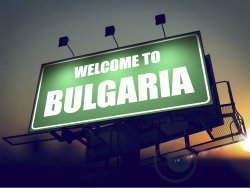Bulgaria: ICT Investment for SME Growth
Bulgaria has the second-fastest broadband in the world after South Korea and the largest ICT sector in southeastern Europe, which generates 10% of the nation's GDP. Bulgarian SMEs – particularly those in the field of language technology – are enjoying great successes in attracting funding from the EU. Over 30% of Bulgarian partners in EU projects are SMEs compared to an average of 16% across the EU. Bulgarian SMEs are punching above their weight, bringing on a new generation of entrepreneurs and ICT specialists, and building up the country’s already-substantial digital workforce. ‘The world is rapidly moving to a model of digitalized economy and to stay complacent about the Information technology of today means to lag behind in the digital market of tomorrow,’ said Gergana Passy, Digital Champion and the former Bulgarian Minister for European Affairs. ‘To stay competitive, the EU must foster ICT innovation and the fresh and enthusiastic cadres needed to implement it. The path to that lies in expanded R&D funding.’ Bulgarian ICT Companies Help Make Sense of the World Over EUR15 million of EU funding is currently shared between 66 projects and 89 contributors in Bulgaria. Many of these partners are SMEs so the investment helps to foster growth in the Bulgarian ICT jobs market, as well as supporting the development of valuable intellectual property. One of the most prolific partners in these projects is the company Ontotext. With only 55 employees, Ontotext produces some of the most advanced semantic technologies for the web. These technologies help to make sense of the vast amounts of information that are available online. For example, Ontotext is a project partner of the PHEME project. Phemes – or “rumor-memes” – are common on social media. Whether these are outright hoaxes or misunderstandings, the end result is the same: misinformation spreads on services like Twitter or Facebook and it can be very difficult to separate the truthful information from the fake stories. Ontotext is working with eight other partners throughout the EU to develop a smart technique to alert users to rumours and misinformation. Ontotext’s expertise in searching for meaning in online articles is key to the success of the project; their technology makes it possible to compare social media messages with trusted sources of information and to look for discrepancies. Ontotext is also involved in the KHRESMOI project. The four-year, EUR10 million project is helping medical professionals to access and understand important information from research publications, notes and medical images like x-rays and scans. By presenting this information in a user-friendly format, the project is making life better for researchers, the medical industry, doctors, nurses and patients alike by speeding up and improving medical decision-making. Research Funding, Economic Development Ontotext is only one of several SMEs in Bulgaria that are playing a key role in EU ICT projects. Project management, software development and utilities companies are all benefitting from EU investment in ICT R&D. Tetracom IS is responsible for the project management and commercialisation of the ATLAS project. This EUR 3.3 million project - 50% funded by the EU - addresses the challenge of creating multilingual content. For example, managing information in all 24 official languages of the EU is an enormous challenge, but the ATLAS project allows organisations like universities, libraries and businesses to manage and publish information in many languages simultaneously from a single tool. Two Bulgarian ICT companies, Enterprise Communications Group OOD and ICOM OOD are collaborating on the HEERO2 project. This project received EUR 300,000 to investigate the possibility of fitting cars with accident detection systems. These systems, based on an array of in-vehicle sensors - will alert the emergency services in case of an accident, even if the driver is incapacitated. If all drivers in the EU could be persuaded to install the system, it is estimated that this could save around EUR 20 billion of the EUR 160 billion financial impact of road accidents annually. Investing in a Better Environment EU ICT investment is also helping to improve quality life by reducing waste and greenhouse emissions. The Commission has invested EUR 3.8 million in iURBAN, a EUR 5.6 million, three-year project. The project uses smart sensors to monitor and predict energy use and generation, and two Bulgarian utilities companies are leading the scheme in Plovdiv – one of the two EU cities chosen as pilot sites. Elsewhere, the IT consulting company Balkan Services has received EUR 300,000 in funding to develop radiofrequency tracking devices (RFID tags) to manage stock control. Balkan Services is developing services to intelligently manage stock by tracking RFID tags embedded in cable drums, increasing efficiency and cutting waste; smart tags and a smart investment for a better world. Based on the most recent analysis and data published by Digital Agenda for Europe, Bulgaria showed a constant improvement in EU-funded ICT projects participation since 2007. With a participation in 83 projects over the 2007-2013 period and involving 55 organisations for a cumulated total of €19 million, Bulgaria is showing a clear interest for sectors like Language Technologies, Intelligent Information Management and ICT for Learning.
Keywords
Bulgaria, ICT, EU, FP7, SMEs, Ontotext



